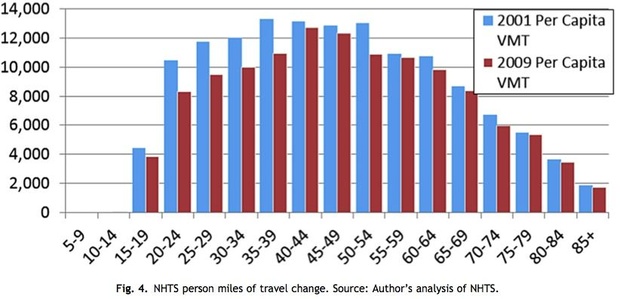The only thing everyone agrees on about Millennial driving habits is that they're on the decline. As you'll see in the chart below, every American age group drove less in 2009 than in 2001, but the gaps were strikingly high in the 20- to 40-year-old segments of the population. There's no arguing with these numbers:

Where things get polarized is why these shifts have occurred, because answering that question would help predict how these patterns will hold up in the future—and thus what policies we should adopt in the present. So we see cities claiming victory over Millennials. And we see suburbs making similarlycompelling cases. We see claims that technology is changing Millennial behavior. And counter-claims that economics are at the root of this shift. It's a tug-of-war for America's young adults.
Here's the thing: it's very unlikely any single factor will emerge as the overriding reason why Millennials aren't driving as much as their parents did. Life just isn't that clean. To that end, Steven Polzin of the Center for UrbanTransportation Research at the University of South Florida and colleagues do the debate a huge service with an objective data dive into the 10 biggest factors changing Millennial driving behavior, based on a 2009 national travel survey . Let's follow them inside the numbers:
Read the rest of the story here: http://www.citylab.com/commute/2014/11/the-10-biggest-factors-changing-millennial-driving-habits/382763/
No comments:
Post a Comment